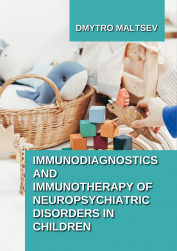Results of a retrospective analysis of use of high-dose intravenous human normal immunoglobulin for the treatment of immune-dependent encephalopathy with a clinical picture of autism spectrum disorders in children with genetic deficiency of folate cycle
Keywords:
Immunodiagnostics, immunotherapy, neuropsychiatric disorders, children, diagnostics, therapyAbstract
Autism spectrum disorders (ASD) are a group of heterogeneous neuropsychiatric disorders that are variable in phenotype and are clinically characterized by deficits in social interactions, impaired communication, and stereotyped behavior. Currently, there is a rapid increase in the frequency of this severe pathology in the child population, the reasons for which are still not sufficiently understood. As noted by Hughes H.K. et al. in a systematic review on the problem of ASD, in the USA, for the period from 1972 to 2014, the frequency of registered cases of this neuropsychiatric pathology increased from 1 case per 10 thousand people (0.01 %) to 1 case per 57 children (2 %), that is, 200 times, which cannot be explained only by an increase in the quality of detection of this pathology by modern medicine.
There is now accumulating evidence that immune mechanisms are involved in the pathogenesis of ASD in children, which may open the way for testing immunotherapeutic interventions in this severe and common disease. Thus, the association of ASD with certain HLA histocompatibility antigen loci has been demonstrated, as is noted in a number of human autoimmune and allergic syndromes [49]. Various forms of immunodeficiencies have been described in children with ASD, and studies devoted to some primary immune dysfunctions indicate an increased risk of autism in such cases. There are frequent reports of the appearance of ASD in adults and children after episodes of neuroinfections, mainly of an opportunistic nature. Children with ASD have been shown to have various autoantibodies to brain autoantigens that are not produced in healthy individuals. Moreover, several clinical trials have suggested the benefit of immunotherapy in selected patients with ASD. All of these compelling arguments call for attention to the role of immune-mediated mechanisms in the pathogenesis of ASD in humans.

IMMUNODIAGNOSTICS AND IMMUNOTHERAPY OF NEUROPSYCHIATRIC DISORDERS IN CHILDREN
Downloads
Pages
Published
Categories
License

This work is licensed under a Creative Commons Attribution-NonCommercial-NoDerivatives 4.0 International License.

